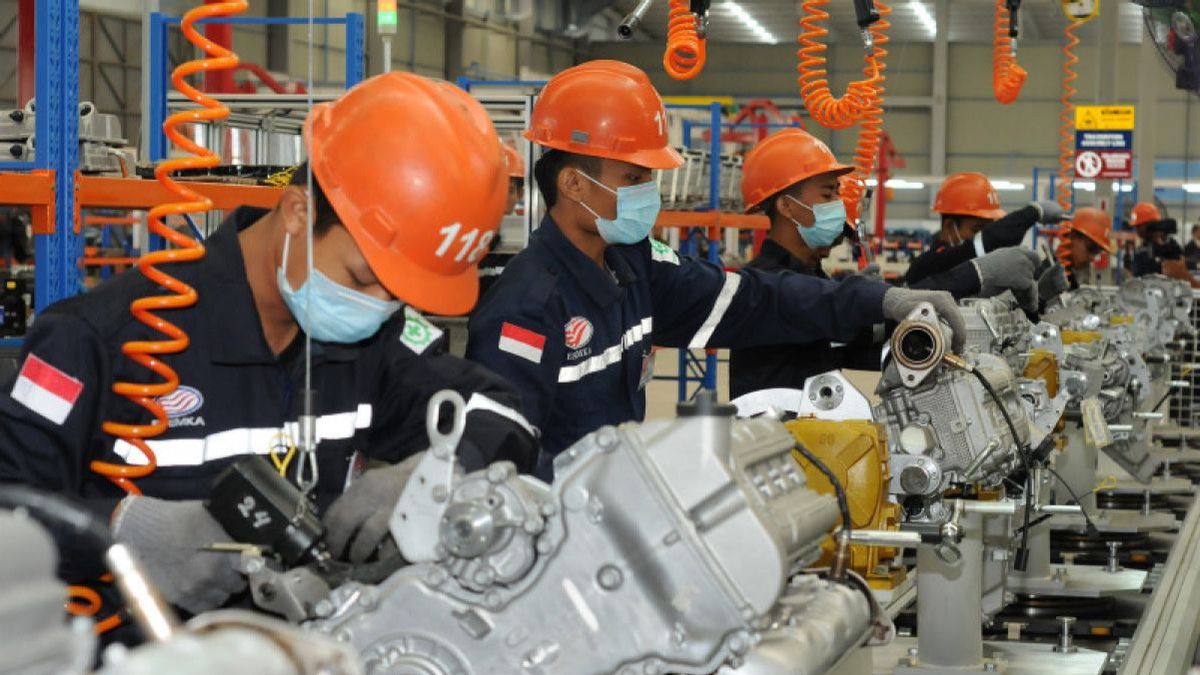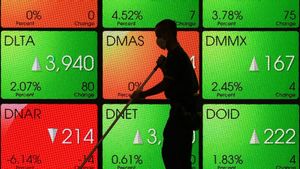JAKARTA - The Ministry of Industry (Kemenperin) said that there was a slowdown in the Indonesian Manufacturing Purchasing Manager's Index (PMI) in May 2024. Spokesperson for the Ministry of Industry Febri Hendri Antoni Arif assessed that this was influenced by regulations that did not support the domestic industrial sector.
Febri said that one of the rules in question is the Regulation of the Minister of Trade (Permendag) Number 8 of 2024 concerning Import Policy and Regulation.
"Although our PMI is still solid and healthy, it has started to decline. We are afraid that this decline is partly due to regulations that are not pro to industry players, which are considered less friendly to the manufacturing sector. One of them is Permendag 8/2024, thus affecting the optimism of domestic industry players," said Febri in an official statement received by VOI, Tuesday, June 4.
The Ministry of Industry is committed so that the implementation of Permendag 8/2024 does not have a negative impact on the manufacturing sector in Indonesia. This effort was made so that the manufacturing PMI next month will not experience a decline in the coming month.
"We have received input from many industrial sector associations who expressed their objections to the implementation of Permendag 8/2024 and that has also been conveyed by them to the public by each association," he said.
According to the Ministry of Industry, the implementation of certain natural gas price policies (HGBT) for industries that offer a price of 6 US dollars per MMBTU is in uncertainty.
This policy is considered important because it functions as a stimulus to increase industrial productivity and attract investment. Many potential investors are waiting for certainty regarding the sustainability of HGBT because incentives are considered as the key in increasing industrial competitiveness.
"There are so many potential investors waiting to see whether the HGBT 6 US dollars per MMBTU policy for this industry will continue or not," said Febri.
In addition, the Ministry of Industry highlighted the importance of two main instruments to improve the performance of the national industry, namely the Indonesian National Standard (SNI) and the Domestic Component Level (TKDN).
SNI is used to control imports and protect local industries. Meanwhile, TKDN can encourage investment, grow the industrial sector that is still underdeveloped and increase added value.
Not only that, the Ministry of Industry also said that it was necessary to evaluate the TKDN threshold. If the threshold is too high, there must be adjustments to ensure that the TKDN policy remains effective without removing its policy.
"This must be adjusted (adjust) which so far is considered the TKDN threshold is too high. Not removing the TKDN policy," he said.
In general, industries in the country are considered to remain healthy and solid despite the unstable political and global economic turmoil. Indonesia's Manufacturing PMI reached 52.1 in May 2024, although slightly decreased from its previous month's achievement, which was 52.9.
SEE ALSO:
National industry players managed to maintain PMI's performance in the expansion phase for 33 consecutive months. The decline in production activity in the industrial sector was due to a decrease in foreign orders and concerns about reducing domestic orders.
Indonesian Manufacturing PMI in May 2024 was able to surpass the German Manufacturing PMI (45.4), France (46.7), Vietnam (50.3), Japan (50.4), Taiwan (50.9), United States (50.9), England (51.3), South Korea (51.6), China (51.7) and the Philippines (51.9).
"We should be grateful and grateful to the national industry players who until May (2024) can still maintain PMI's performance in the expansion phase," concluded Febri.
The English, Chinese, Japanese, Arabic, and French versions are automatically generated by the AI. So there may still be inaccuracies in translating, please always see Indonesian as our main language. (system supported by DigitalSiber.id)











